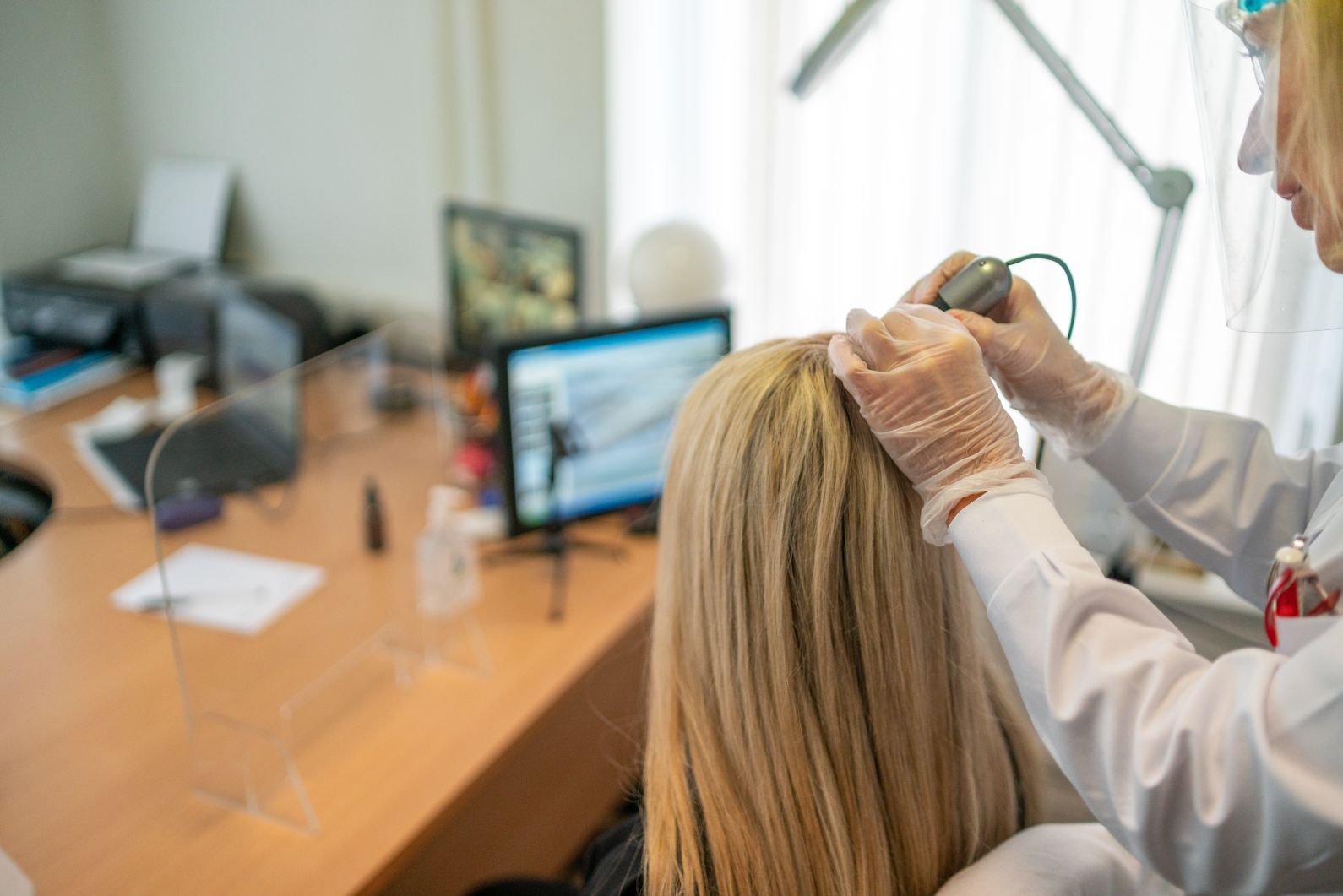Before we talk about alopecia cure, it is important that we define what alopecia is first. Alopecia is the medical term for hair loss. But some people also use it to refer to alopecia areata, an autoimmune condition characterised by hair falling in small patches. In this article, we use it to refer to hair loss.
Now, let’s tackle what everyone wants to know about alopecia – if there is a cure for it. Below we’ve compiled some important information about this topic.
Facts About Alopecia Cure
Effective treatments are available for hair loss.
These include clinically proven medications which are formulated to promote hair growth or stop hair fall. Laser therapy is also used in treating hair loss, specifically to stimulate hair follicles and consequently, grow new hair. Meanwhile, a hair transplant, an invasive treatment, is often recommended in severe hair loss cases.
Treatment is not the same as cure.
Most people think that treatment and cure are the same, but these two words have different meanings.
Treatment pertains to a process or procedure that can improve a person’s health but not eliminate the disease or condition. On the other hand, cure refers to any process or procedure that puts an end to the disease or condition and leads to the complete restoration of health.
While there are alopecia treatments, they do not cure hair loss. This means that you may grow back your hair, but the condition that’s causing the excessive shedding is still there.
Alopecia treatments offer hope.
The good news is that the hair loss treatments available these days are highly effective. But to achieve excellent results, there should be an accurate diagnosis of the cause of the alopecia.
In case you didn’t know, there are different causes of hair loss. You need an expert such as a dermatologist or trichologist, so your condition can be properly assessed.
Getting early treatment is equally important. This is especially true for progressive hair loss conditions like female pattern hair loss and male pattern baldness. Early treatment improves your chances of achieving better results.
Not all hair loss conditions require treatment.
Some hair loss conditions are not permanent. In fact, some of them get resolved on their own even without any intervention or medication.
For example:
If you are suffering from telogen effluvium, you can expect the excessive hair shedding to stop in a few months or when the cause is eliminated. In most cases, medications are not needed and you can expect your luscious locks to be back. However, if the hair loss is severe or if the cause is chronic stress, then you need to see a hair specialist to prevent the condition from worsening.
So, instead of looking for a cure for your hair loss, what you should do first is to consult a trichologist or dermatologist to find out if the problem will go away on its own.
Alopecia Cure: The Search Continues
Some hair loss conditions may be reversible, but the most common ones like pattern hair loss and alopecia areata are not. This is why scientists are tirelessly working to find a cure for balding or hair loss.
Each year, billions are spent to prevent hair loss and regrow hair. This is a clear indicator of how important having a full head of hair is to most people. In fact, studies show that alopecia impacts mental health, especially amongst young people. All these serve as additional motivation for scientists to work doubly hard to find a permanent solution to hair loss.
The absence of an alopecia cure after all these years is not for lack of trying though. It is mainly because of the complexity of the hair follicles and the limited understanding of how they work.
But thanks to advancements in technology, scientists know a lot more about these complex structures. This paved the way for significant progress to be achieved in the search for a cure for balding or hair loss.
Recently, Japanese scientists announced that they have identified stem cells that play an integral role in hair regeneration. They are now looking at conducting clinical research wherein they’d use these cells on subjects with male pattern baldness.
Several biotechnology companies are also developing new drugs which have higher efficacy in growing hair. Others are focusing on creating better medications that slow down or completely stop hair loss.
In summary, the ongoing studies and recent findings are very promising. In fact, many scientists think that they are on the verge of finding a panacea to hair loss. But while waiting for this elusive cure, don’t hesitate to use the highly effective hair loss treatments available. Remember, the earlier you get treated, the better your chances are of getting good results.
Are you suffering from hair loss? Don’t let the knowledge that there isn’t an alopecia cure stop you from seeing a hair & scalp specialist. Call us now on +353 (0)1 6793618 and schedule an appointment with our trichologist to find out which proven hair loss treatments can help you get back your full head of hair.



